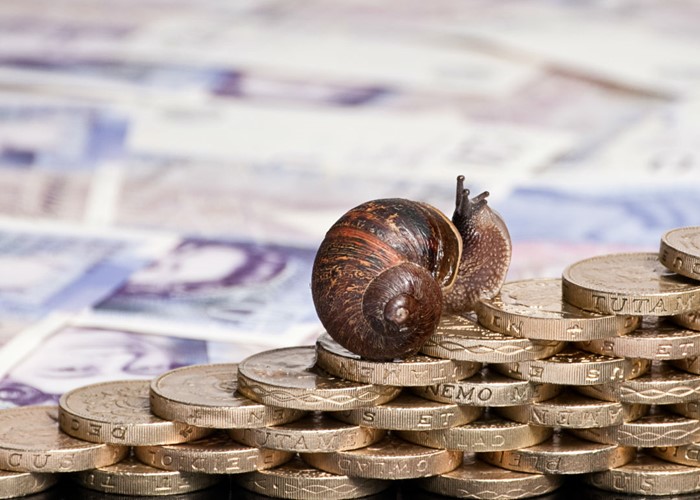Borrow Enough To Get Out Of Debt!

The latest borrowing figures from the Bank of England make for grim reading, so we suggest ways to banish your debt demons.
At first glance, it appears that we Brits borrowed a hideously large sum in June 2006.
The latest figures for personal debt from the Bank of England, released this morning, show that we now owe a record £1,016 billion to mortgage lenders. On top of this, our non-mortgage debts (credit cards, personal loans, overdrafts, etc.) total a cool £212 billion, making the grand total £1,228 billion.
The previous month's totals were £1,007 billion for mortgages and £192 billion for other debts, a grand total of £1,199 billion. Hence, it appears that our total debt has increased by £29 billion in June, which would be an enormous leap. In reality, the Bank of England now includes debts owed to the Student Loans Company in its calculations, which boosted the figure for non-mortgage debt by almost £19 billion overnight.
Each month, we Brits set a new record for total personal debt, which is why I believe that we have become a nation of 'credit junkies' -- unable to control our spending and addicted to borrowing to fund our lifestyles.
For example, I did a double-take last week when I saw a newspaper advertisement for personal loans from Northern Rock. It included the strapline, "I have the urge to splurge" and was accompanied by a frog with pound signs in his spinning eyes. Although the loan itself was on offer at a Best Buy typical rate of 5.7% APR, this is far from responsible marketing. If you feel the 'urge to splurge', don't look for a loan; instead, lie down in a darkened room until the urge goes away!
The title of this article is based on a notorious loan advert (probably an urban legend) which offered borrowers the opportunity to 'pay off all their debts today' simply by 'borrowing enough to get out of debt'. Of course, this idea is nonsense: in reality, all you'd do is roll up your existing debts into a consolidation loan, thus transferring your existing debts to a single lender.
As you would expect, arranging a consolidation loan doesn't 'clear' your debts, any more than fleeing the country would. Indeed, according to one survey, six out of seven people who arranged a consolidation loan later went on to build up fresh debts to go with their new loan. Oops!
When I finally saw the light in the late Nineties and faced up to my £50,000 debt burden, I tried everything short of get-rich-quick schemes to solve my problem. Finally, I was forced to concede defeat and play by the rules of the debt game. Here are five harsh lessons that I was forced to learn:
1) You can't get out of debt by borrowing more
This sounds blindingly obvious, but millions of borrowers have yet to grasp this basic fact: if you want your debts to reduce, you have to stop borrowing, full stop. It's as simple as that.
2) You need to live within your means
If you're going to stand any chance of paying off sizeable debts over a reasonable timescale, you need to maximise your disposable income. This means spending less than you earn, boosting your income and reducing your expenses.
3) You need to know where your money goes
According to one recent report, we Brits can't account for an eighth of all of our spending. To be honest, this doesn't surprise me in the slightest. In fact, given our inability to budget sensibly, I'm amazed that the proportion of 'missing money' isn't higher. If you can't measure your money, you can't manage it, so it's vital to learn to budget.
4) You need to minimise your interest bill
Although a large debt may be a pain in the rear, it's the interest which adds insult to injury. For example, a typical credit card charges an annual interest rate of 15.5% APR, which is a high price to pay for the convenience of paying by plastic. For store cards, the typical APR rises to a sky-high 25.5%, which is daylight robbery.
If you'd like to reduce your interest bill and bring forward your debt-free day, take a look at these interest-free and low-rate credit cards.
5) You need a plan and lots of discipline
If you're going to get out of debt, you need determination, discipline and a plan. It's takes great self-control to curb your spending, especially when everyone else is spending like there's no tomorrow. Then again, cutting back on treats, vices and life's little luxuries will speed up your debt-repayment plan no end -- and can bring your debt-free day forward by months or even years!
Good luck with turning your debt tanker around!
Comments
Be the first to comment
Do you want to comment on this article? You need to be signed in for this feature